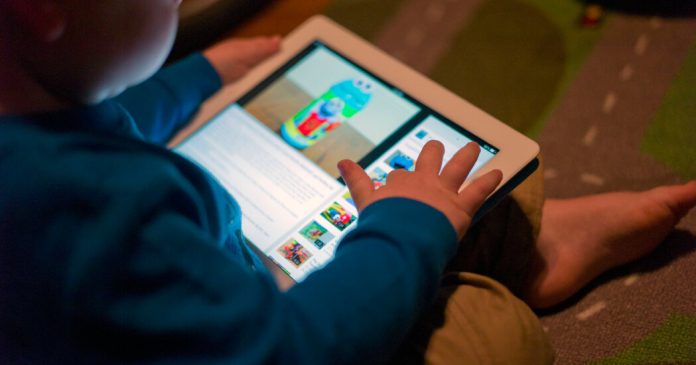Some Background: What interrupts household chatter?
Researchers have long known that growing up in a language-rich environment is vital for early language development. More language exposure early in life is associated with social development, higher I.Q.s and even better brain function.
Given the value of such exposure, researchers in Australia were eager to investigate potential factors within the home environment that could be interrupting opportunities for parents to interact verbally with their children. Previous studies on the impact of technology mostly examined a parent’s use of a mobile device, rather than a child’s use of screens, and relied on self-reported measures of screen time rather than automated monitoring.
What Researchers Found: Every minute counts.
The new study, led by Mary E. Brushe, a researcher at the Telethon Kids Institute at the University of Western Australia, gathered data from 220 families across South Australia, Western Australia and Queensland with children who were born in 2017. Once every six months until they turned 3, the children wore T-shirts or vests that held small digital language processors that automatically tracked their exposure to certain types of electronic noise as well as language spoken by the child, the parent or another adult.
The researchers were particularly interested in three measures of language: words spoken by an adult, child vocalizations and turns in the conversation. They modeled each measure separately and adjusted the results for age, sex and other factors, such as the mother’s education level and the number of children at home.
Researchers found that at almost all ages, increased screen time squelched conversation. When the children were 18 months old, each additional minute of screen time was associated with 1.3 fewer child vocalizations, for example, and when they were 2 years old, an additional minute was associated with 0.4 fewer turns in conversation.
The strongest negative associations emerged when the children were 3 years old — and were exposed to an average of 2 hours 52 minutes of screen time daily. At this age, just one additional minute of screen time was associated with 6.6 fewer adult words, 4.9 fewer child vocalizations and 1.1 fewer turns in conversation.
What Happens Next: A look at “co-viewing.”
Lynn Perry, as associate professor of psychology at the University of Miami who was not involved in the study, said she was impressed by the way the study employed an objective measuring tool to demonstrate associations that “had previously only been assumed.”
Dr. Perry, who studies language and social interaction among preschool children, said experts in the field should next investigate how media designed to be viewed by parents and children together “might allow for more conversational turn-taking and bypass some of the negatives of screen time.”
Sarah Kucker, an expert in language development and digital media at Southern Methodist University in Dallas who was also not involved in the study, called the analysis “impressive” but emphasized that understanding the nuances of how and when media is used in a larger and more diverse population is “a critical next step.”
“Media is not going away,” Dr. Kucker said, “but paying attention to how and when media is used may be a good future avenue.”
Source link
Emily Baumgaertner















